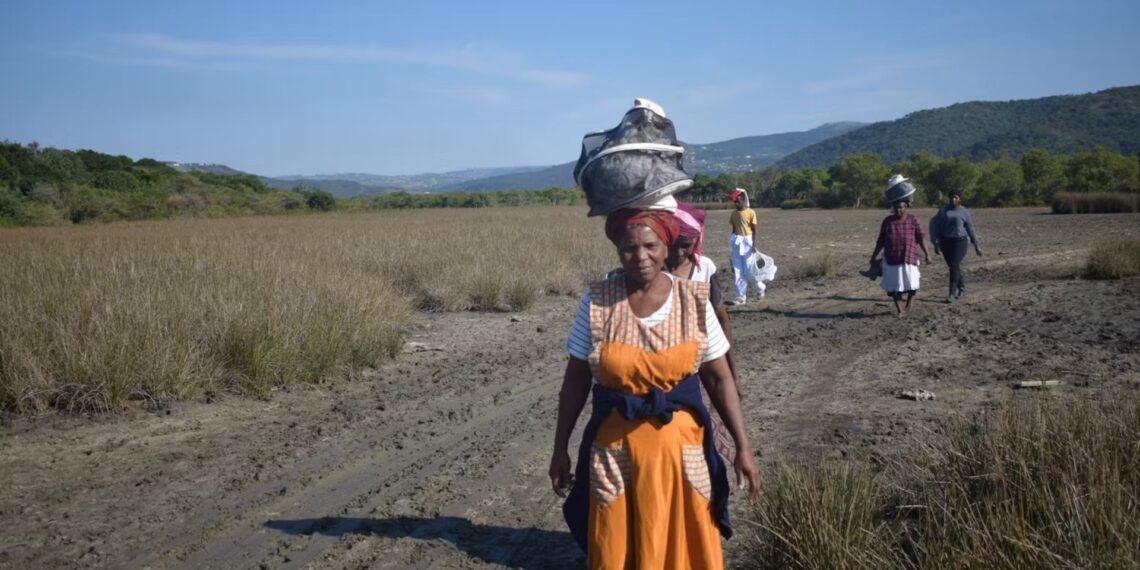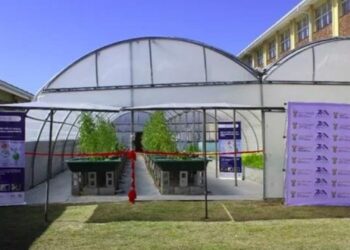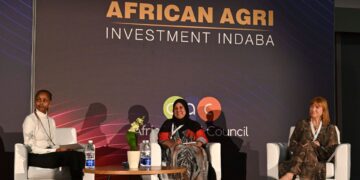Rural women small-scale farmers keep households and local markets going, yet many structural barriers limit their participation and growth. Insecure land rights and gender-blind institutions that treat everyone the same on paper but overlook women’s circumstances end up excluding them from the agriculture industry.
In many communal areas, women lack title deeds or joint ownership, so they can’t pledge land as collateral. Because of this, banks often assess women smallholders as “high risk”, and formal credit remains out of reach. Cooperative boards and agriculture programme committees are largely run by men. This reduces women’s voices in strategic decisions on inputs, pricing, training, and market access.
Information about extension and training services doesn’t always reach small-scale women farmers. When it does, training is typically once-off with little follow-up mentoring to apply new skills. Small-scale women farmers don’t always hear about grants either, and many rely on informal savings groups (stokvels) to finance their farms. This can be useful for liquidity, but it is not enough for larger investments.
In South Africa, a stokvel borrowing history also doesn’t contribute to the women farmers’ credit profile, and this is what formal financial institutions review during a loan evaluation process.
These problems interact: weak land tenure blocks finance; limited finance prevents women from growing their farms, and exclusion from leadership prevents women from making reforms that would fix both. The net effect is a structural glass ceiling that keeps women-run agribusinesses small and their voices quiet.
What did the citrus project aim to achieve, and did it succeed?
One of the ways that the government has tried to help small-scale women farmers solve these problems is by partnering them with commercial farms. For example, on some farms, former farmworkers are given 75% of the shares of a new farm, with the other 25% held by citrus companies, which then transfer their skills.
Related stories
- Ipeleng wins prestigious M&G Power of Women Award
- ‘One woman, one hectare’: Farm women demand land rights
- Food justice: Rural women launch campaign to end hunger
We studied an Eastern Cape citrus-sector public–private partnership. Its aim was to support emerging citrus farmers to sell their oranges commercially, and provide them with pack-houses to use for storing and packing their fruit. It didn’t look at securing title deeds to land for women or helping them put up collateral.
We interviewed women farmers who were part of the citrus partnership and compared the project’s official reports with six years of research into what was actually happening on the ground.
Our research found that the project helped both men and women farmers to develop better technical skills in growing citrus. The farmers also said they received more support on their farms before and after harvesting. Some managed to export citrus, boosting their incomes.
However, the women farmers did not benefit as much as men. For example, the women farmers had no real influence, because they weren’t chosen to take up voting seats on co-op boards or the public-private partnership steering group. They had no authority over budgets and procurement. They didn’t get to choose trainees or play a role in negotiating supply contracts.
Our research found that the gains women farmers made in training didn’t translate into equal control over resources or markets. This means that even well-intentioned programmes can miss the mark if they are designed as gender neutral, overlooking the specific problems affecting women
How does this match up to the global promises made to women farmers?
We looked at the G20 Women’s Empowerment track and the private-sector Women’s Empowerment Principles. We also studied the G20 Development agenda.
We found a disconnect between high-level policy and on-the-ground reality. For example, the G20’s Global Partnership for Financial Inclusion has issued concrete guidance for supporting women, youth and small businesses.
Yet for this to happen on the ground requires improved internet connectivity, trusted local agents who know how to support women farmers, providing loans that don’t require land deeds, and reporting the results for women and men separately. These support measures aren’t always in place.
Making sure that rural women, small-scale Eastern Cape farmers have equal access to finance isn’t just about fairness — it’s key to household welfare and rural prosperity. When women gain financial tools and assets, families benefit through better food security and well-being.
In the Eastern Cape, where poverty and food insecurity are high, empowering women agripreneurs could significantly boost local development and food supply. There’s a gap between a woman tending her field in a small Eastern Cape village like Lusikisiki and policymakers drafting G20 communiqués. Closing this gap is challenging but achievable.
Government agriculture programmes must have targets and quotas for how many women they will empower, data showing how the different genders are doing, and women must have decision-making roles.
The government must track how many women get loans, training, and leadership posts. The results must be published, and steps taken to improve support for women. Improving laws helps women farmers get more access to finance.
South Africa should lead by example within the G20 and match strong approaches in the rest of the world. These include India’s self-help groups, where women pool their finances. Today, there are 14 of these groups in every village, with 100 million women in India as members.
Indonesia’s women-centred group lending and Brazil’s programme for strengthening family farming could also work in South Africa. West Africa also has successful women-led cooperatives, savings groups and group-guarantee finance.
South Africa’s policies for women in agriculture must align with the G20’s guidelines on financially including small-scale women farmers. Encouraging women’s leadership is very important. It helps dismantle stereotypes, and in patriarchal rural settings, this shifts norms, inspires younger women, and improves decisions that benefit whole agricultural value chains.
- This story was first published on The Conversation. It was written by Sive Zintle Mbangiswano, lecturer in the Entrepreneurship Development Unit and co-ordinator of the Student Women Economic Empowerment Programme (SWEEP), Faculty of Management Sciences, Central University of Technology.
READ NEXT: South African Agricultural Awards 2025: Here’s what to expect


















